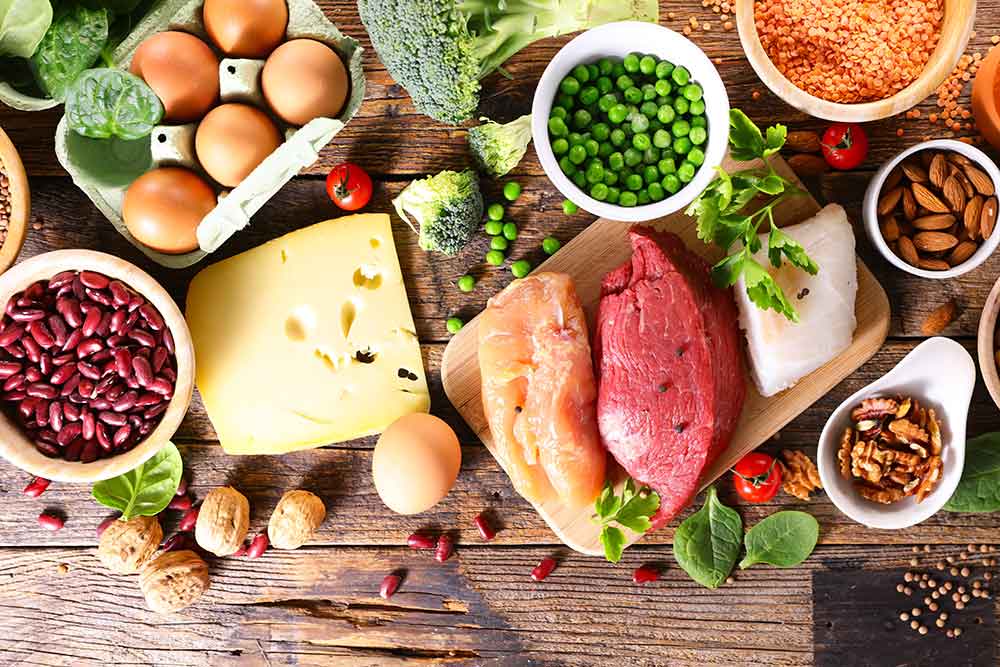Why Protein is So Important After Bariatric Surgery

Building protein into your routine doesn’t have to be complicated.
If you’ve had bariatric surgery—or you’re considering it—you’ve likely heard this phrase more than once: “Make sure you’re getting enough protein.“ And while it may sound like a simple suggestion, protein plays a powerful and essential role in your success after surgery.
Think of protein as your best friend on this journey—there to help you heal, support your weight loss goals, and give you the energy you need to feel your absolute best. Here are the top reasons why protein deserves a front-row seat on your plate.
1. Protein Powers Your Healing Process
After bariatric surgery, your body is working overtime to heal from the procedure. This is not just about the external incisions—it’s also about the internal changes your body is adjusting to. Protein is made up of amino acids, which are the building blocks of tissue repair.
When you consistently give your body high-quality protein during the healing phase, you:
- Support faster recovery
- Minimize complications
- Strengthen your immune system
Bottom line? Protein helps your body bounce back stronger—so you can start experiencing the results you’ve been hoping for, sooner.
2. Protein Helps Protect Your Lean Muscle Mass
Here’s something most people don’t realize: when you lose weight, you’re not just losing fat. If you’re not careful, you can also lose muscle—and that’s not what you want.
Muscle is what helps your body burn calories more efficiently, keeps your metabolism humming, and supports strength and mobility as you lose weight. That’s where protein comes in. It helps preserve your lean body mass, especially when paired with light physical activity approved by your provider.
So even as the number on the scale goes down, protein ensures you’re losing the right kind of weight—and keeping your body strong in the process.
3. Protein Keeps You Full and Satisfied
As you know, after surgery, your stomach is much smaller. That means every bite matters.
Protein-rich foods are more filling and take longer to digest. This helps:
- Keep hunger and cravings at bay
- Stabilize your blood sugar
- Prevent energy dips throughout the day
When you prioritize protein at each meal, you’re more likely to feel satisfied without needing to snack or overeat. That’s a major win when you’re trying to stay on track with your weight loss goals.
4. Protein Fuels Your Energy
Many patients worry about feeling tired or sluggish after surgery—especially as they adjust to smaller meals and a new routine. Here’s some good news: protein can help.
When your body gets enough protein (especially alongside your vitamins and hydration), it helps maintain your energy levels so you can:
- Stay focused during the day
- Be more active
- Bounce back from workouts or daily activity faster
And —more energy just feels good.
5. How Much Protein Do You Actually Need?
While your specific protein goals may vary based on your weight, procedure, and provider recommendations, a good general rule is 60–80 grams of protein per day after surgery.
You’ll start with liquids and slowly progress to soft proteins and solid foods as your body adjusts. Common protein-packed options once you are past your liquid phase include:
- Protein shakes or powders (especially early on)
- Eggs
- Greek yogurt
- Cottage cheese
- Lean meats (chicken, turkey, fish)
- Tofu or tempeh
Reminder: Always eat your protein first. This ensures you get the most important nutrients before you get full.
6. Making Protein a Habit (Without Overwhelm)
Let’s be honest—it can feel like a lot to remember early in your journey. But here’s the truth: building protein into your routine doesn’t have to be complicated.
Here are a few easy tips to make it stick:
- Prep ahead: Cook and portion out protein-rich meals and snacks in advance.
- Blend it in: Add protein powder to smoothies, soups, or even coffee.
- Keep it simple: Rotisserie chicken, tuna packs, string cheese, or Greek yogurt can be your on-the-go BFFs.
- Track your intake: Use a journal or app to see how you’re doing daily.
Protein isn’t just a box to check. It’s the cornerstone of your post-surgery success.
So, the next time you hear your care team emphasize protein, know that it’s not just a suggestion—it’s a proven strategy to help you feel strong, successful, and supported every step of the way.
At Long Island Laparoscopic Doctors we’re here to support you through every phase of your transformation. Whether you’re newly post-op, further along, or just starting to explore your options, we’ve got resources, guidance, and a community that understands.
If you are considering weight loss surgery, schedule a consultation or check out our nutrition support services at https://journeytothenewyou.com/contact-us/ or give us a call at (631) 476-9296.